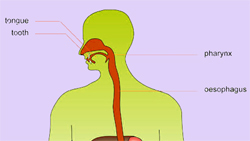
In a tiny ray of hope in medical science, the US researchers have claimed to discover a pathway that links with Barrett's esophagus - an abnormal change (metaplasia) in the cells of the lower portion of the esophagus - to heartburns and trigger esophageal cancer.
According to Principal investigator Weibiao Cao, M.D., of the department of pathology and medicine at Rhode Island Hospital, if this pathway is blocked by complete acid suppression with a proton pump inhibitor, it may reduce the risk of the cancer.
Patients with persistent acid reflux complicated by Barrett's esophagus may be at a higher risk of developing lethal esophageal cancer.
Patients with acid reflux and Barrett's esophagus may need to take a proton pump inhibitor (PPI) such as omeprazole twice a day if they are still experiencing symptoms with just a single daily dose.
The study also suggests that an enzyme NADPH oxidase NOX5-S, which produces hydrogen peroxide, is responsible for gene damage such as p16, a tumor suppressor, and plays an important role in the development of esophageal cancer.
"Further research is needed, but this finding suggests that patients with acid reflux complicated by Barrett's esophagus may be able to significantly reduce, or even eliminate, their risk of esophageal cancer through daily or twice-daily doses of PPI," Cao said.
The study is published in the journal American Journal of Cell Physiology.
--With ANI Inputs--
|
|


Comments: